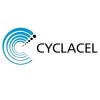
A Pilot Study of Metformin Therapy in Patients With Relapsed Chronic Lymphocytic Leukemia (CLL)...
Relapsed Chronic Lymphocytic LeukemiaMetformin is an antidiabetic drug which is an inexpensive and generally well tolerated medication. More recently metformin has been shown to act against carcinomas by two mechanisms: 1) an indirect, insulin-dependent mechanism which sensitizes tissues to insulin, inhibits hepatic gluconeogenesis, and stimulates uptake of glucose in muscle, thereby reducing fasting blood glucose and circulating levels of insulin, lowering the pro survival activity of the insulin/INSR axis, and 2) a direct, insulin-independent mechanism which activates the AMP-activated protein kinase (AMPK) pathway and leads to inhibition of the mTOR pathway. Given the investigators preliminary published data on insulin and mTOR inhibition[1] metformin is an attractive candidate for a pilot clinical trial in CLL patients.

Phase I Trial of the Selective Inhibitor of Nuclear Export, KPT-330, in Relapsed Childhood ALL and...
Relapsed Acute Lymphoblastic Leukemia (ALL)Refractory Acute Lymphoblastic Leukemia (ALL)7 moreThis research study involves participants who have acute lymphoblastic or acute myelogenous leukemia that has relapsed or has become resistant (or refractory) to standard therapies. This research study is evaluating a drug called KPT-330. Laboratory and other studies suggest that the study drug, KPT-330, may prevent leukemia cells from growing and may lead to the destruction of leukemia cells. It is thought that KPT-330 activates cellular processes that increase the death of leukemia cells. The main goal of this study is to evaluate the side effects of KPT-330 when it is administered to children and adolescents with relapsed or refractory leukemia.

PCI-32765 (Ibrutinib) in Treating Patients With Relapsed or Refractory Chronic Lymphocytic Leukemia,...
Prolymphocytic LeukemiaRecurrent Small Lymphocytic Lymphoma1 moreThis is a Phase II, single institution open-label, non-randomized monotherapy study to evaluate the clinical efficacy and durable disease control of PCI-32765 administered to patients with relapsed/refractory CLL/SLL/PLL of all risk categories with patients having deletion 17p13 independently evaluated.

Romidepsin in Treating Patients With Lymphoma, Chronic Lymphocytic Leukemia, or Solid Tumors With...
GliomaHematopoietic and Lymphoid Cell Neoplasm48 moreThis phase I trial studies the side effects and best dose of romidepsin in treating patients with lymphoma, chronic lymphocytic leukemia, or solid tumors with liver dysfunction. Romidepsin may stop the growth of cancer cells by entering the cancer cells and by blocking the activity of proteins that are important for the cancer's growth and survival.

Serial Measurements of Molecular and Architectural Responses to Therapy (SMMART) PRIME Trial
Accelerated Phase Chronic Myelogenous LeukemiaBCR-ABL1 Positive55 moreThis phase Ib trial determines if samples from a patient's cancer can be tested to find combinations of drugs that provide clinical benefit for the kind of cancer the patient has. This study is also being done to understand why cancer drugs can stop working and how different cancers in different people respond to different types of therapy.

CYC065 CDK Inhibitor and Venetoclax Study in Relapsed/Refractory CLL
Relapsed or Refractory Chronic Lymphocytic LeukemiaA Phase I Combination Study of CYC065 and Venetoclax for Relapsed or Refractory Chronic Lymphocytic Leukemia (CLL)

A Study of Nemtabrutinib (MK-1026) in Participants With Relapsed or Refractory Hematologic Malignancies...
LymphomaB-Cell8 moreThis study aims to evaluate the safety, tolerability, pharmacodynamic, and pharmacokinetic (PK) of nemtabrutinib (formerly ARQ 531) tablets in selected participants with relapsed or refractory hematologic malignancies. No formal hypothesis testing will be performed for this study.

Study of Inotuzumab Ozogamicin Combined to Chemotherapy in Older Patients With Philadelphia Chromosome-negative...
Acute Lymphoblastic Leukemia (ALL) - Philadelphia Chromosome (Ph)-Negative CD22+ B-cell Precursor (BCP)The aim of the present EWALL-INO study is to confirm very promising results obtained with a combination of INO and mild chemotherapy in older de novo CD22+ B-ALL patients. For that purpose, safety and efficacy of a weekly INO administration combined to mild-intensity chemotherapy will be evaluated in a cohort of patients aged more than 55 years with newly diagnosed previously untreated Ph-negative (CD22+) BCP-ALL. Conversely to the MDACC miniHCVD-INO study and in order to lower the overall toxicity of the combination, INO will be given as part of the remission induction treatment phase during the first 2 treatment cycles only, in combination with corticosteroid, vincristine, cyclophosphamide and intrathecal prophylaxis only; then, all responding patients will received standard INO-free chemotherapy as consolidation and maintenance.

A Study of AZD6738 and Acalabrutinib in Subjects With Relapsed or Refractory Chronic Lymphocytic...
Chronic Lymphocytic LeukemiaThis study evaluates the safety, pharmacokinetics, pharmacodynamics and efficacy of acalabrutinib and ceralasertib (known as AZD6738) when taken in combination.

Duvelisib and Nivolumab in Treating Patients With Richter Syndrome or Transformed Follicular Lymphoma...
Chronic Lymphocytic LeukemiaRecurrent Diffuse Large B-Cell Lymphoma6 moreThis phase I trial studies the side effects and best dose of duvelisib when given together with nivolumab in treating patients with Richter syndrome or transformed follicular lymphoma. Duvelisib may stop the growth of tumor cells by blocking some of the enzymes needed for cell growth. Immunotherapy with monoclonal antibodies, such as nivolumab, may help the body's immune system attack the cancer, and may interfere with the ability of tumor cells to grow and spread. Giving duvelisib and nivolumab may work better in treating patients with Richter syndrome or transformed follicular lymphoma compared to giving duvelisib or nivolumab alone.
